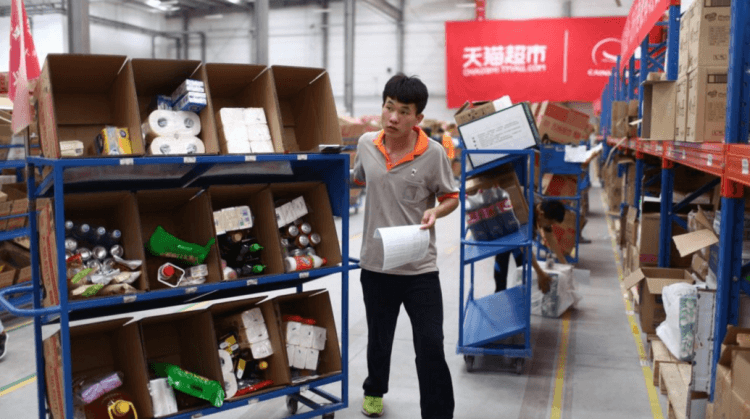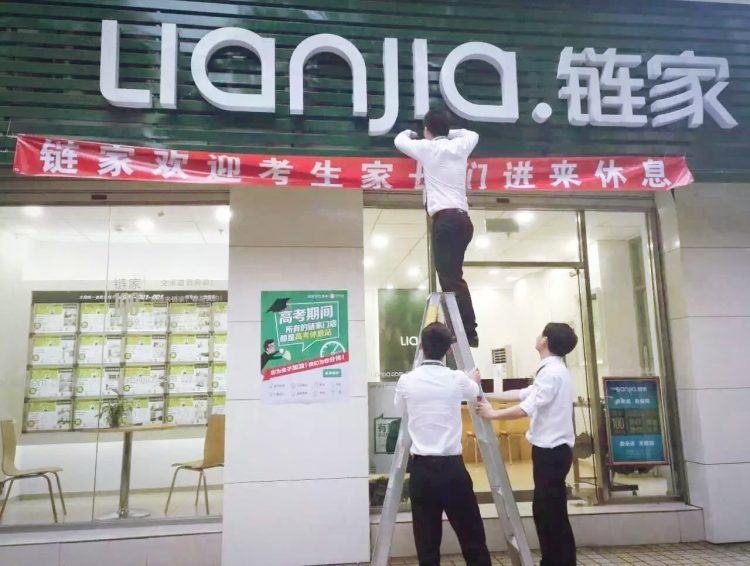
Another bountiful year for Chinese startups raising money. Photo credit: anizza / 123RF.
When it comes to funding in Asia, China takes the cake. In the first half of 2016 alone, investors poured US$37 billion into Chinese startups, according to the Tech in Asia database.
Similar to top investments in other Asian countries, such as those in Indonesia, most of China’s largest funding rounds in 2016 came from well-known companies, such as Didi Chuxing, Uber, and Ant Financial. Overall, ride-hailing, fintech, and O2O were some of the hottest and most capital-sucking verticals in China.
Here are 10 of the largest funding rounds we saw in China this year.
Didi Chuxing
- US$7.3 billion
- Didi invests in bike-sharing and struggles against new regulations

Apple’s Tim Cook with Didi’s Jean Liu, pictured in Beijing shortly after Apple’s investment was announced. Photo credit: Tim Cook on Twitter.
Chinese ride-hailing giant Didi Chuxing swept up US$7.3 billion dollars in a monster round of funding this summer. Investors included SoftBank, Alibaba, a Chinese life insurance company, and Apple, which was responsible for US$1 billion of the investment. The boost of capital raised the stakes in Didi’s fight against archrival Uber, ultimately resulting in the latter’s acquisition in a deal worth US$35 billion.
Now, still flush with cash, Didi is making investments of its own, such as in Ofo, one of the main players in China’s nascent bike-sharing industry. The Chinese unicorn is also battling new regulations from the Chinese government, which sets restrictions on who can drive.
See: My one-day experience of bike sharing with Mobike
Ant Financial
- US$4.5 billion
- Mobile payments, micro-loans, wealth management, online banking
Ant Financial, the finance affiliate of ecommerce giant Alibaba, pulled in US$4.5 billion in a series B round led by Chinese sovereign wealth fund China Investment Corporation and China Construction Bank. Ant Financial is best known for Alipay, China’s most popular mobile payment app. The Chinese fintech company also offers various wealth management products, micro-loans, and an online bank called MyBank.
Meituan-Dianping
- US$3.3 billion
- Survivor of China’s cash-burning online-to-offline industry
China’s largest group deals site Meituan-Dianping broke records in January when it raised US$3.3 billion, the largest non-IPO funding round in the tech industry at the time. Previously two separate companies, Meituan and Dianping merged last October in a deal negotiated by investors on both sides, Alibaba and Tencent, respectively. The two companies were part of China’s blazing food delivery industry in 2015, which, like ride-hailing, involved lots of cash-burning subsidies.
Uber China
- US$2 billion
- Merged with archrival Didi Chuxing in August

Photo montage: Tech in Asia.
Uber China, now part of Didi Chuxing’s transportation empire, took in nearly US$2 billion in January. Uber China put up a fierce battle against Didi, spending a billion dollars a year, according to Uber CEO Travis Kalanick. The cash-burning shenanigans ended in August, with both companies shaking hands and making peace after Didi’s acquisition of Uber’s China business.
Cainiao
- Over US$1.44 billion
- Hundreds of millions of dollars in losses so far

One of Cainiao’s many fulfillment centers. Photo credit: Alizila.
Cainiao, the logistics affiliate of Alibaba, raised a series A worth “over US$1.44 billion” in March, according to Chinese media group Caixin. Investors from all over the region participated, such as Temasek Holdings and GIC in Singapore, Malaysia’s Khazanah Nasional, and China’s Primavera Capital.
Unlike fellow ecommerce players Amazon and JD, Alibaba does not hold any inventory, instead relying on third-party logistics companies and warehouses. In 2013, Alibaba created Cainiao to boost the speed and coverage of its logistics network. Cainiao currently partners with about 90 logistics companies, who use Cainiao’s data-driven logistics platform. It’s also growing its own network of warehouses. Cainiao is not yet profitable and has lost hundreds of millions of dollars since opening.
Ele.me
- US$1.25 billion
- Food safety concerns raised a month before funding announced
Shanghai-based food delivery startup Ele.me announced a US$1.25 billion boost from Alibaba and Ant Financial in April, despite concerns around food safety raised a month earlier.
Ele.me – which translates to “Are you hungry?” in Chinese – is one of the main players in China’s capital-intensive O2O industry, which includes Baidu Waimai and Meituan-Dianping. Prior to this round, Ele.me raised hundreds of millions of dollars over multiple rounds from other well-known investors, including Sequoia Capital and Tencent.
JD Finance
- US$1 billion
- Parent company JD explores spinoff options
JD Finance, the consumer finance subsidiary of ecommerce giant JD, completed a US$1 billion round of series A funding this year, led by Sequoia Capital China, China Harvest Investments, and China Taiping Insurance. JD Finance is one of several Chinese tech companies tapping consumer and enterprise demand for credit in China, including Alibaba’s Ant Financial. JD Finance might soon become its own independent entity, as parent company JD explores spinoff options for its internet finance business.
WM Motor
- US$1 billion
- First car electric car model won’t be released until 2018

One of WM Motor’s concept vehicles, the XLD Executive Sedan. Photo credit: WM Motor.
Electric-car maker WM Motor made headlines in August with a US$1 billion series A – a mammoth amount of funding for an early-stage startup. Founded by Freeman Shen, who previously worked at Geely (the Chinese carmaker that acquired Volvo in 2010), WM Motor is one of several companies in China’s electric car industry, which includes NextEV, LeEco, and Tesla Motors. In an interview with Bloomberg, Freeman said that WM Motor would release its first car model in 2018, and plans to produce more than 100,000 units a year in the following three years.
LeSports
- US$1.15 billion
- Parent company LeEco reports running out of cash
LeSports, the sports entertainment arm of Chinese tech giant LeEco, announced its series B round amounting to US$1.15 billion earlier this year. The company offers a combination of events operations, streamed content, and smart devices, and partners with sports organizations such as FIFA and the NFL to offer event coverage.
LeSports’ parent company LeEco told stakeholders it was running out of cash in November, as its rapid expansion in various sectors, from smartphones to electric cars, took its toll. Things were so dire that Chinese billionaire and LeEco chairman and co-founder reportedly cut his own salary to 1 yuan or 14 cents. Luckily, Yueting’s business school buddies pulled together US$600 million to finance the struggling tech giant in November, easing LeEco’s financial troubles for now.
Lianjia
- US$863 million
- IPO rumors after financing

Staff outside a Lianjia store. Photo credit: Lianjia’s Weibo.
Online real estate site Lianjia raked in US$863 million in a series B round led by private equity fund Huasheng Capital. Chinese tech giants Baidu and Tencent also participated in the round of investment.
Founded in 2010, Lianjia provides listings of different kinds of property, from housing rentals to sales of overseas property. Shortly after the announcement of Lianjia’s series B financing, various media outlets reported that the real estate startup was preparing to go public. However, the company has yet to announce any further details on an IPO.
This post The 10 largest investments in China this year appeared first on Tech in Asia.
from Tech in Asia https://www.techinasia.com/top-ten-investments-china-2016
via IFTTT
No comments:
Post a Comment